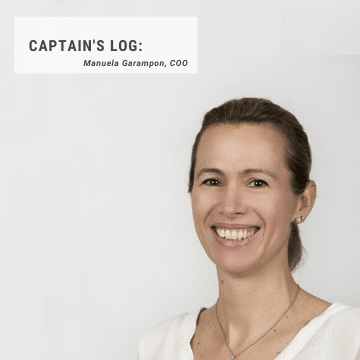Use our template to create a compelling and comprehensive Swift Dev job description to attract top talent.
The Swift developer role was born together with Apple’s new programming language: Swift. The language is specially designed to develop iOS, macOS, Apple TV and Apple Watch applications.
Also explore the role of the Android Developer
Swift was created to replace Objective-C, a ubiquitous language dating back to 1983 and not very flexible in use. Since its first appearance in 2014, the language has quickly gained momentum and popularity among developers for its ease of use and —well, as its name suggests — its speed.
Accordingly, Apple is banking big on Swift to propel its platform moving forward, and most applications being developed today are coded in this language. It’s, therefore, the future of Apple programming — a language you should add to your CV if you plan on working with or for the California company.
What is the role of a Swift developer?
The jobs reserved for a Swift developer are, then, the same as those of any Apple-specific developer. They simply use Swift as their main coding language.
Participate in the assessment of user needs
In order to design “tailor-made” computer programs, developers need to take part in the early stages of the application design process. They participate, thus, in the initial assessment of user needs, in the development and ultimately in the test phase of the prototype.
A good developer should be well informed of innovations via trade and social media, but also by going to industry shows and publisher conferences.
Follow the specifications to develop an application
Usually, the project manager, with whom the developer works closely, establishes the requirements for any development, with whom the developer works closely. The latter will follow these specifications during the creation, testing and updating of the application.
Adapt the software to your needs
Once the app is launched, changes are often necessary both in terms of maintenance and upgrades. Therefore, the Swift developer also supports the training of the software’s end can even help write the user guide in some cases.
Required skills
Excellent technical knowledge
Swift developers must obviously have a deep understanding of the Swift language, as well as possess complementary capabilities in XHTML, PHP, etc. They must know the Apple universe very well and understand its issues and constraints, both for desktop and for mobile. Knowledge of Objective-C language may also be required.
A strong team spirit
The developer’s job is largely dependent on teamwork. Beyond direct and almost permanent contact with the project manager and other developers, a developer often has also to work with graphic designers, UX experts and the clients themselves.
An analytical mind and rigour
A Swift developer needs to be a good analyst to pinpoint user needs and devise solutions. They must also be rigorous and very well organized to produce quality code and deliver proper software performance.
Within the industry
Formerly outsourced, the developer role has become a real strategic job within companies. Development skills are now key differentiators for teams looking to streamline the software production pipeline and increase the agility of IT operations in general.
Salary of the Swift Developer
The salaries of Swift developers, of course, varies a lot depending on the level of experience, but, for example, the daily rate of a swift contractor tends to oscillate between €350 and €800.
Training of the Swift Developer
Although there is no specific academic path that one must follow to become a Swift Developer, a degree in computer engineering is usually required. However, as it is becoming more and more common in tech, experience and practical know-how take preference over diplomas. At the end of the day, what employers want is that you can demonstrate expertise in Swift language and projects.
Looking to get your feet wet with Swift? Apple’s popular Swift Playgrounds app for iOS and macOS is a great – and free – platform to get you started.
Discover all the web development programming skills and professions














